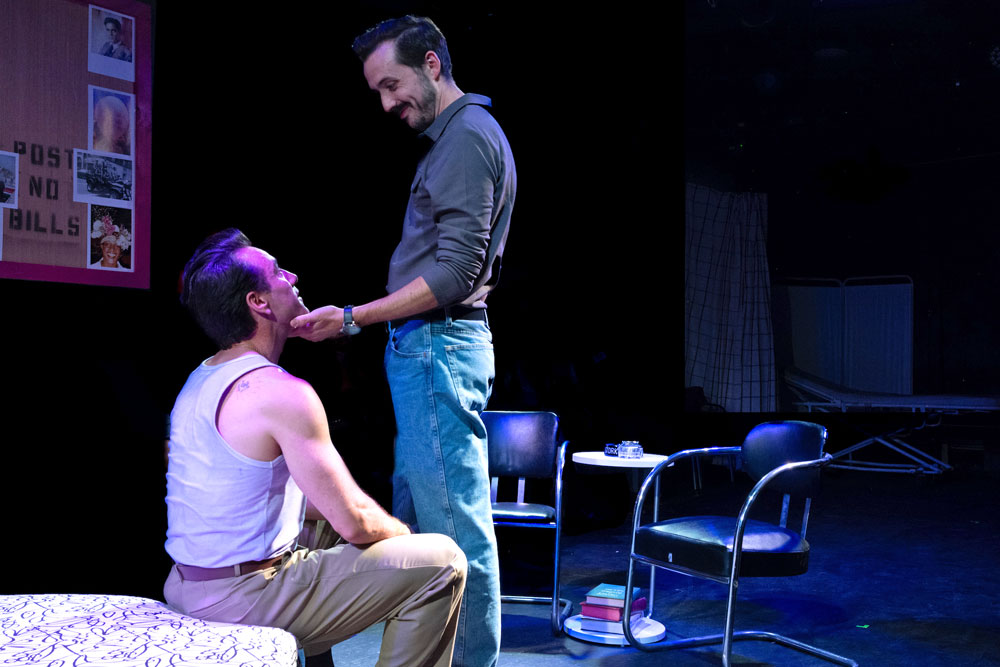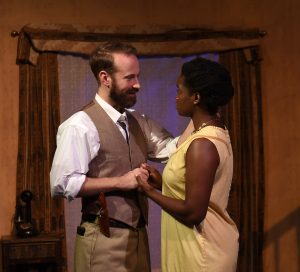
Eclipse Theater ends its season of William Inge with perhaps the playwright’s barest and most personal work; a rework of his first professional play with autobiographical overtones. The Dark at the Top of the Stairs opens in tension and exists in struggle. It’s also a journey into the unknown that’s familiar to everyone; making it both relevant and relatable.
Most of us have a piece of life that remains either an open question, a source of doubt or an unfulfilled hope or dream. In Inge’s 1957 play set in the early 20’s, he reminds us that those doubts are all a part of who we are.
Although the play’s progression reveals the angsts and anxieties of its main characters, it orbits most intimately around the mother of an Oklahoma family who, although she married very young, is clearly devoted to and very much in love with her traveling salesman husband. Not yet 35, with a 16-year-old daughter, Reenie (Destini Huston) and a 10-year-old boy Sonny (James Leonardi), her concerns for her family extend beyond the everyday. Neither of her children are adapting well to life. Rennie is introverted and seems to cower from reality’s demands. Her 10-year brother loses himself in movies and movie stars and is the victim of incessant bullying.
Eclipse often rattles convention and implements non-standard casting to contemporize and reimagine works from decades past. Here Cora Flood, very admirably played by Aneisa Hicks, is African-American. Rather than simply place a black actor into a role that would ordinarily be assigned to one who is white and leave the plot line unaltered, the story was tweaked to acknowledge the family as mixed. In 1922 Oklahoma, the Flood family would not only be considered highly unorthodox; it would have been illegal. Oklahoma passed anti-miscegnation laws in 1908.
Strangely, race seems to play virtually no role in the difficulties the children have in adjusting to the small town’s insulated social climate. That race may be weight in the marriage receives only a cryptic, “You didn’t want to marry me anyway”. A claim that could stem from any number of factors.
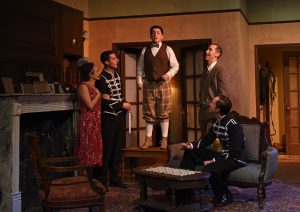
Despite the confusing awkwardness in handling the racial component, the core of the play still shines rewardingly through thanks to the strength of its truths.
For the Floods those truths lie in what is valued. What makes Cora so compelling is her clarity in understanding what she treasures: her husband and her children. She also wants to be accepted by the social hierarchy so that her children might enjoy smoother passage into the world.
Being the stay at home parent whose partner is often absent carries its own burden. Burdens the play’s lead faces them with determined dignity. Perhaps it’s that reserve of inner strength that finally drives her to confront her husband about his infidelity. The scene is searingly dramatic and thunders with authenticity. When her husband Rubin (Chris Daley) strikes her and leaves, it’s not clear whether he’ll be coming back.
In some adaptations of The Dark at the Top of the Stairs, Cora’s conflicted about whether to stay with her husband or to leave him. Not here. She may need to find other ways to survive if he doesn’t return, but reconciliation; one that recognizes and respects her own value is what she truly quietly craves.
By placing the mother’s strength opposite her daughter’s weakness and her husband’s obstinacy; the playwright makes her an unwitting yardstick for living and gifts the play moral force.
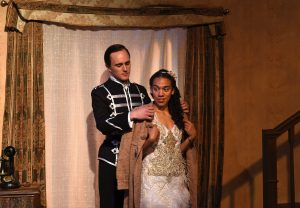
And rather than letting Reenie stew benignly in her shyness, the work shows that losing ourselves in our own regrets can have lasting and sometimes tragic consequences. She didn’t trust the brightness and warmth a brief glimpse at what romance showed her. Her decision to continue to coddle self became deadly. Zachery Wagner as Sammy Goldenbaum, Reenie’s blind date convincingly wore the pain of an emotionally neglected kid exiled to boarding school. One who still put a smile on his loneliness to give hope to those he saw carrying pain similar his own.
When Cora sister Lottie (Sarah-Lucy Hill) shows up with her dentist husband to provide emotional support, we also see how relationships can become so mired in routine and suffer from such a lack of vigor that they ossify and become mere shadows of what they should or could be. Lottie’s buoyancy turns out to be nothing more than bravado hiding a moribund marriage.
A visual coup, Eclipse’s The Dark at the Top of the Stairs carried mood and sense of place beautifully. The use of silhouettes to heighten anticipation added an element of drama that gave a wonderful feel of rightness to the production. As did the accent Hicks devised in her pivotal role as Cora. That gentle southern hill country twang rang with pleasant genuineness that translated into credibility and invited empathy.
The Dark at the Top of the Stairs
Eclipse Theatre Company
Nov 15 – December 16, 2018
The Athenaeum Theatre
2936 N. Southport Ave.
athenaeumtheatre.com
773-935-6875
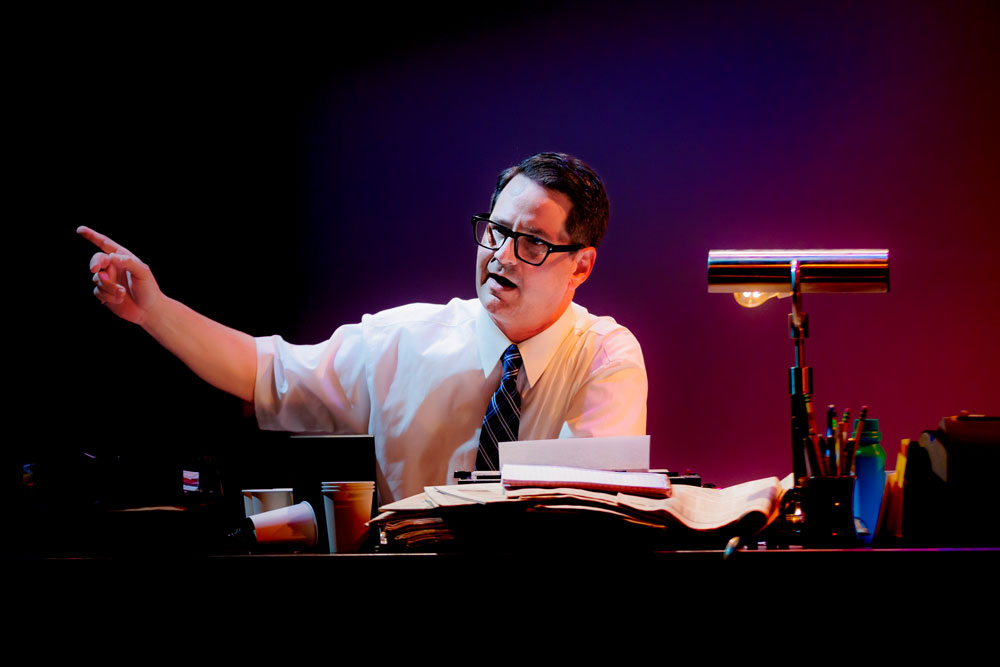
![PrideArts [title of show] Raining Gold](https://rowgseat1.com/wp-content/uploads/2024/09/a53939222075_ceaf585bae_k.jpg)
